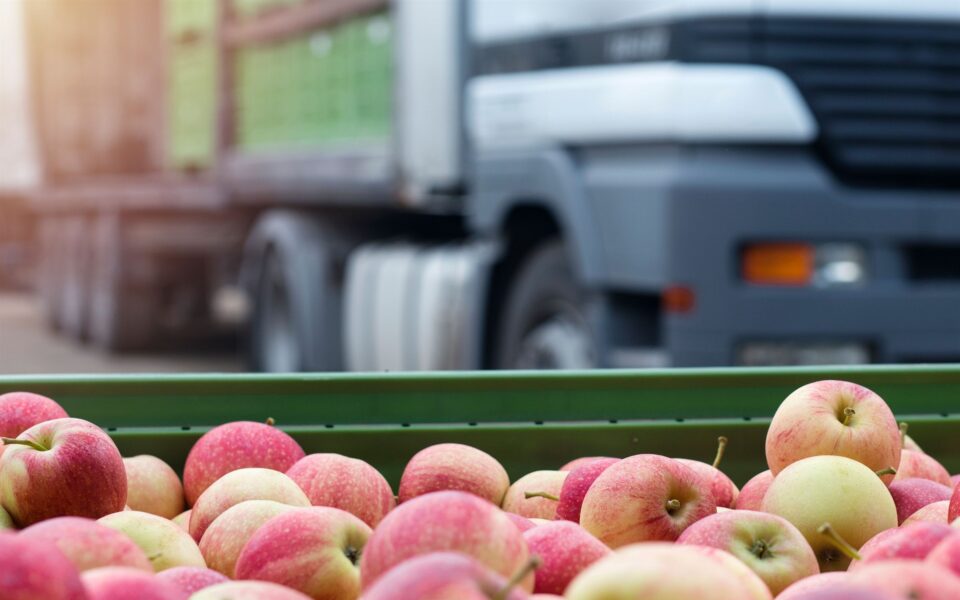Fruit and veg exports suffer

The war in Ukraine is having direct and indirect effects on Greek fruit and vegetable exporters, with exports posting a decline ranging from 6.5% to 39.1%, depending on the product.
And the impact from the halt in exports to Ukraine is more than a first glance would suggest: Since the start of the year Belarus has responded to European Union sanctions by imposing an embargo on EU products; combined with the Russian invasion in Ukraine, both indirect routes to the Russian market for Greek fruit and vegetable exports have now been cut off.
There are two more factors, also caused by the war, that have led to a reduction in exported quantities. As Incofruit Hellas, the association of fruit, vegetable and juice exporters, points out, the war in Ukraine and the sanctions against Russia have shifted the balance among markets and caused a reorientation of exports toward the EU and the United Kingdom; this has especially affected fruit such as oranges and lemons, which third countries like Morocco, Turkey and Egypt traditionally export to Russia, Ukraine and Belarus: The supply of such fruit from cheaper producers in third countries to the European markets has therefore grown significantly.
The other factor concerns the slowdown in the consumption of fresh produce in Europe in an effort by households to meet the challenges of higher energy and fuel costs. In some countries consumption of fresh fruit and vegetables has decreased 10%, with expenditure being shifted to foods with a longer shelf life due to fears the war might expand.
Data show that in the period from October 1, 2021 to Friday, March 18, Greece exported 210,268 tons of oranges, which was 16.5% down on the same period in October 2020 – March 2021. There was also a 10.5% decline in mandarin exports and a 39.1% decline in lemon exports. Apples suffered a 27.6% decline, and only kiwis enjoyed an annual increase, amounting to 10.7% year-on-year.
After the start of the tomato and strawberry season on January 1, producers had recorded 19.4% and 22.3% reductions respectively up until Friday, according to the export figures available.





